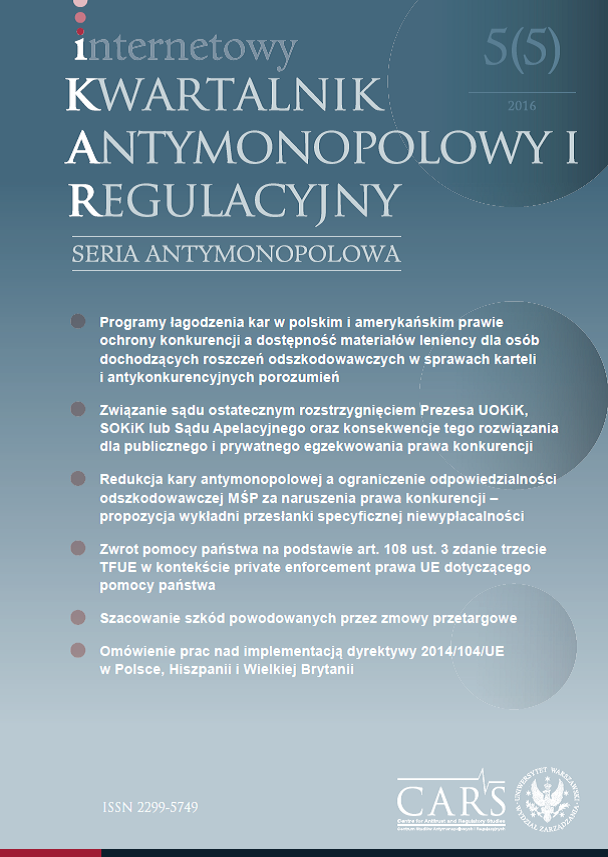Związanie sądu ostatecznym rozstrzygnięciem Prezesa UOKiK, SOKiK lub Sądu Apelacyjnego oraz konsekwencje tego rozwiązania dla publicznego i prywatnego egzekwowania prawa konkurencji
The binding effect of final decisions by the President of the Office for Competition and Consumer Protection, the Court for Competition and Consumer Protection and the Court of Appeal, and its consequences for public and private competition law enfor
Author(s): Joanna Lenart, Teresa Kaczyńska-KochaniecSubject(s): Business Economy / Management, Commercial Law
Published by: Wydawnictwo Naukowe Wydziału Zarządzania Uniwersytetu Warszawskiego
Keywords: private enforcement directive 2014/104/EU; private enforcement; antitrust infringement; effect of national competition authorities’ decisions; binding effect of final decisions; joint participation in
Summary/Abstract: This article analyses the issues linked to the binding effect of national competition authorities’ and appeal courts’ final decisions on civil courts, introduced by Directive 2014/104/EU of the European Parliament and of the Council of 26 November 2014 on certain rules governing actions for damages under national law for infringements of the competition law provisions of the Member States and of the European Union (the Directive), which requires implementation into the Polish legal system. Although in principle the adoption of this solution should contribute to an increase in the effectiveness of private competition law enforcement, its shape and scope might be problematic to a certain extent. Therefore, in this article the authors consider the scope of the binding force of the President of the OCCP’s final decisions and analyse in detail the impact of the nature of joint participation in civil proceedings in competition law cases on the possibility and effectiveness of private competition law enforcement, in particular in terms of legal certainty. In addition, the authors indicate substantial risks which may arise in this context. These considerations expressly demonstrate the existence of a conflict between several general rules underlying the Directive. The article concludes with the de lege ferenda proposals regarding the Polish provisions which would implement the Directive
Journal: internetowy Kwartalnik Antymonopolowy i Regulacyjny (iKAR)
- Issue Year: 5/2016
- Issue No: 5
- Page Range: 58-80
- Page Count: 23
- Language: Polish

